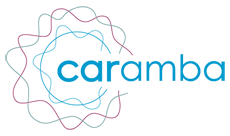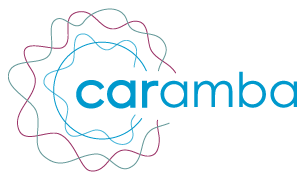VJHemOnc’s video series on CART cells interviewing HErmann Einsele
During the EBMT-EHA 4th European CAR T-cell Meeting, VJHemOnc interviewed Hermann Einsele, MD, FRCP, University of Würzburg, Würzburg, Germany on CAR-T therapy for multiple myeloma patients and beyond. Watch the videos below, produced by the fantastic VJHemOnc team.
Exciting developments in CAR-T therapies in and beyond hematological malignancies
Hermann Einsele, MD, FRCP, University of Würzburg, Würzburg, Germany, discusses the latest advances in chimeric antigen receptor T-cell (CAR-T) therapies. CAR-Ts have changed the treatment landscape of hematological malignancies and are now being evaluated in earlier lines of therapy. There is a lot of ongoing work in developing CAR-Ts for solid tumors, as well as in other conditions including cardiac fibrosis, and autoimmune and infectious diseases. This interview took place at the EBMT-EHA 4th European CAR T-cell Meeting which was held virtually in 2022.
Approved and emerging CAR-Ts in multiple myeloma
Hermann Einsele, MD, FRCP, University of Würzburg, Würzburg, Germany, comments on the efficacy and safety of idecabtagene vicleucel (ide-cel) and ciltacabtagene autoleucel (cilta-cel), two chimeric antigen receptor T-cell (CAR-T) therapies for multiple myeloma. Ide-cel has been approved by the FDA and EMA for patients with multiple myeloma who have received at least three lines of prior therapy and has shown impressive results in terms of overall response rate (ORR) and progression-free survival (PFS), with a low incidence of cytokine release syndrome (CRS) and neurotoxicity. Cilta-cel is another promising CAR-T therapy for multiple myeloma. Although it hasn’t been approved yet, studies are reporting very high response rates (RR) and remarkable PFS data, with limited toxicities. Clinical trials are also investigating these CAR-T therapies in earlier lines of therapy, which could ultimately allow achieving long-term control of the disease. This interview took place at the EBMT-EHA 4th European CAR T-cell Meeting which was held virtually in 2022.
Safety considerations in CAR-T therapy: patient selection and side effects
Hermann Einsele, MD, FRCP, University of Würzburg, Würzburg, Germany, shares guidelines on patient selection and patient follow-up after treatment with chimeric antigen receptor T-cell (CAR-T) therapy. Prof. Einsele explains that patients with comorbidities including cardiovascular and pulmonary diseases, as well as renal, liver or hematopoietic dysfunction should not receive CAR-T therapy. It is also important to avoid exposing patients to lymphodepleting treatments prior to leukapheresis. In addition, clinicians should be aware of side effects that can occur long after treatment with CAR-Ts. This interview took place at the EBMT-EHA 4th European CAR T-cell Meeting which was held virtually in 2022.
Is CAR-T therapy going to replace high-dose chemotherapy with autoSCT in multiple myeloma?
Hermann Einsele, MD, FRCP, University of Würzburg, Würzburg, Germany, talks on the role of high-dose chemotherapy with autologous stem cell transplantation (autoSCT) in the context of chimeric antigen receptor T-cell (CAR-T) therapies in multiple myeloma. CAR T-therapies are undeniably starting to challenge the current standard of care (SOC) due to their high efficacy and low toxicity, and they are currently being investigated in earlier lines of therapy where they are directly compared to chemotherapy and autoSCT. Prof. Einsele explains that CAR-T therapy may also be added to autoSCT as an additional consolidation strategy in high-risk and ultra-high risk disease. This interview took place at the EBMT-EHA 4th European CAR T-cell Meeting which was held virtually in 2022.


